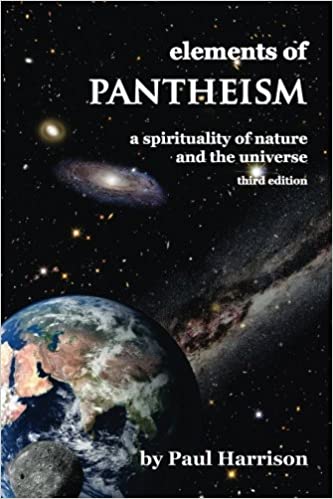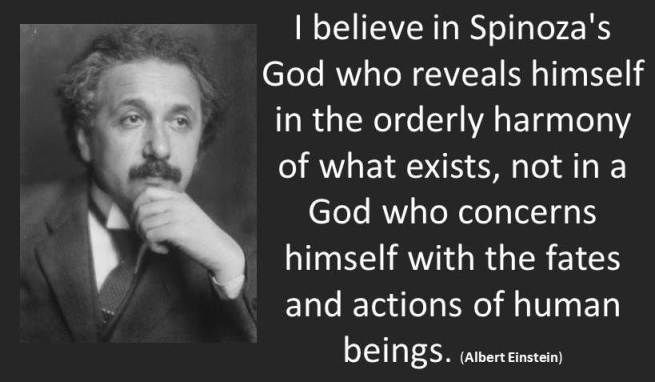Pantheism is the belief that God is Nature. God is not seen as a personal creator character that exists beyond nature that can communicate directly with you. No, God is the universe itself. The plants an animals here on Earth are all aspect of God. There is a divine life force that runs through all living beings and consciousness. This divine power is most visible in the force of nature and the expression of love and unity. This spiritual perspective creates a deep reverence for nature and other sentient beings we share the Earth with. It is philosophy that allows for spiritual experiences while remaining logically and scientifically accurate. For this reason, many scientists and philosophers are pantheist.
There are many religions that hold this spiritual perspective such as:
- Taoism,
- Buddhism,
- Shinto,
- Modern Paganism,
- Core Shamanism (or Neoshamanism) and
- Most Native American Earth-Based Religions.
Those religions share the beliefs of Pantheism, while adding on their own unique perspective, linage, history, wisdom, practices and stories. Pantheism itself is more of an umbrella religion or a category for a religions, yet a person can be pantheist while not a member of any specific religion.
The concept of pantheism can be captured in 3 words: God is Nature. God does not transend reality or exist beyond reality. To understand how it is the most accurate perspective requires a level of intellect and philosophical inquiry. All of the beliefs within pantheism have a foundation in the scientific process and understanding of human culture. From a Pantheistic perspective, God never breaks the laws of nature in the form of miracles or super-natural powers. The creation story of pantheism is simply the fascinatingly elegant scientific explanation of how nature has evolved to become what it is now.
Mythologies are Stories of Wisdom and Not Truth
There are no mythologies associated with pantheism that are considered true. Since mythologies are stories told by humans, pantheists may study mythologies while understanding that they are metaphorical and do not need to be true to have significance. This is an important distinction because as soon as any religion claims it’s mythology is true and all other mythologies are fictional stories, then it has made a logical fallacy that requires a burden of evidence to prove. Yet most mythologies include super-natural powers or involves miracles that can not be proven to be true. Its require the believer to have faith in the place of evidence, or to bend reality to fit an incorrect world view.
It’s much wiser to see how all mythologies in religions are stories that teach ethics and culture and are not meant to be taken as truth. It’s ok to be a member of a religion that has mythology as long as you understand that a mythology is a metaphorical story. These stories are how humans teach each other deeply meaningful lessons of ethics, tradition and the meaning of life.

This book is an excellent source of information on Pantheism. It comes from The World Pantheism Movement (Pantheism.net).
How Pantheism Relates to Atheism and Theism
Pantheists do not believe in any of the personal Gods that are presented in modern mythologies, specifically the pervasive Judeo-Christian perspectives. In this way, Pantheism is not Theism: the belief in a personal judging creator God or Gods who transcend the world, time and space. Pantheists do not believe that God is a personification of the divine, or of nature. God is nature. God is not humanoid, does not speak English and does not place judgement on you when you do something immoral.
Pantheists share a lot in common with Atheists. The primary difference is that Atheists are not convinced that any God exists, in the same way most educated individuals don’t believe unicorns exist. Atheism is a lack of belief, which is completely acceptable and logical. Pantheism allows a scientist or skeptic to have a spiritual life while having a belief system grounded in scientific understanding and observable phenomenon. Some Atheists don’t understand or have not had spiritual experiences that would lead them to become pantheist such as divine beauty and spiritual oneness. If someone doesn’t feel spiritual or divine presence then it is logical for that person to not believe in God out of lack of experience and evidence. Only after a person feels or experiences the divine is that person logically able to justify their belief in God.
Many Pantheists were once atheist, as the majority of the primary religions are outdated and illogical now that we have access to the internet to do our own research. Pantheism agrees with Atheism that all the existing explanations of God from Mythology, translated bibles and ancient scriptures have unsatisfactory evidence for an accurate belief system. Those who have these traditional and limiting belief systems usually have them through indoctrination or desire to fit in with their family or chosen culture. They may experience the same divine spiritual force of love and unity that flows through all living beings, but they add on their cultural mythology to change the source of the divine away from nature and towards a specific deity or deities. This makes it easier for less educated people to understand, because it involves stories and metaphors that are easier to relate to than the actual truth.
Many Theism religions feel good because they offer a mental framework for experiencing redemption, divine importance and a personal relationship with a deity who they can feel and believe loves them. Some spiritual concepts are simplified for the believer such as: those who do bad will go to hell and those who do good will go to heaven and experience everlasting life. These simplified concepts are helpful for people to answer challenging questions and develop basic morals without needing any understanding of human culture, philosophy, psychology or the scientific process. Theism can allow the followers to feel spiritually uplifted and providing a sense of community, inclusion and support. It requires a high level of faith to solve the collective inability to provide evidence for the allegorical religious claims.
Pantheism is a superior perspective because Theism’s spiritually uplifting views come at a grave cost to humanity as they inherently exclude those who don’t believe their mythology or those not chosen by their specific God. This tends to lead to racism, bigotry, intolerance, speciesism and self-righteousness. Worst of all it disconnects the believer from the true source of spirituality divine presence: Nature. This disconnection lead to a tendency for theist religions to neglects environmentalism and lack compassion for other sentient beings we share the Earth with. Theism removes responsibility away from the believer and onto a unique invisible mythological being who purposefully created and has control of reality. This delusion hinders the personal growth of the believer and potentially damages the surrounding community and natural habitat.
Pantheism as Earth-Based Spirituality or Life Philosophy
Pantheism facilitates a deep reverence and connection with natural processes and cycles of the Earth. As corporate greed is destroying the Earth, humans who connect with nature as part of their spiritual practice are much less likely to pay money to environmentally destructive corporations, services or products. This spiritual perspective fosters sustainable innovation, minimalism and environmentally friendly practices that protect the Earth and reduce or counterbalance any damaging footprint or pollution.
Pantheism is a spirituality that is ideally suited for the 21st century. With access to the internet, we now live in an age of information. We are less likely to be fooled by mythologies and religious claims that are not founded in evidence. We can choose from all the religion perspectives that we can learn about from books and the internet. Out of all of them, the pantheistic perspective is the strongest logically making no claims that are untrue while remaining respectful and in awe of natural processes.
Pantheism inherently teaches people to live in harmony with nature, as cruelty free as possible. With respect for all animals on Earth and in the presence of such abundance of affordable products and nutritional information, most pantheists recognize that a plant-based diet is the most spiritually and scientifically aligned food choice for humans.
Pantheism directs the your spiritual attention to the here an now. This is often done through the practice of meditation and spending time in nature. There is an emphasis on spiritual awareness during celestial and seasonal events such as solstice, equinoxes, eclipses and certain moon phases.
Many Famous Intellects are Pantheist
 This is a list of famous people who are pantheist:
This is a list of famous people who are pantheist:
- Albert Einstein
- Lao Tzu
- Carl Jung
- Nikola Tesla
- Alan Watts
- Pete Seeger
- Carl Sagan
- Beethoven
- Ralph Waldo Emerson
- Henry David Thoreau
- Emily Dickinson
- Terence McKenna
- Walt Whitman
- William Blake
- Neil DeGrasse Tyson
- Baruch Spinoza
- And More –
Reference: wikipedia – List of pantheists
To learn more about pantheism, go to the World Pantheist Statement of Principles page at: www.Pantheism.net



